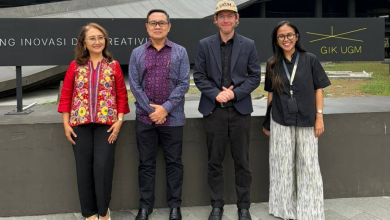GLEIF Partners With IOTA To Enable Digital Identities In Trade


The Global Legal Entity Identifier Foundation (GLEIF) has joined forces with the IOTA Foundation to explore how standardized organizational digital identity can create verifiable on-chain trust for businesses worldwide. The collaboration focuses on integrating the Legal Entity Identifier (LEI) and its verifiable counterpart (vLEI) into distributed ledger infrastructures. The goal is to enhance transparency, interoperability, and efficiency across global trade networks.
IOTA, designed for scalable digital trust applications, provides the underlying distributed ledger infrastructure. Through the Trade Worldwide Information Network (TWIN)—a decentralized trade system built on IOTA—the project viewks to deliver real-time, verifiable data sharing. By embedding digital identities into supply chain processes, the collaboration promises to simplify compliance, reduce friction, and broaden participation in international commerce.
Initial proof-of-concept integrations are underway, testing how organizations can establish and reuse digital identities across both ecosystems. This interoperability could set the stage for a globally trusted , where organizational identity is recognized across ports, customs, banks, and counterparties instantly.
Takeaway
How LEIs And vLEIs Fit Into The Vision
GLEIF’s Legal Entity Identifier framework is already a global standard for organizational identity, used by financial institutions and regulators to verify counterparties. The newer verifiable LEI (vLEI) builds on this by allowing credentials to be embedded into digital workflows. Integrating vLEIs into distributed infrastructures like IOTA’s TWIN enables decentralized, interoperable identity management for businesses worldwide.
This development is significant for compliance-heavy industries. By providing a standardized identity layer that can be recognized across diverse jurisdictions and systems, vLEIs reduce the need for duplicative checks and streamline data platform. For example, customs authorities and trade finance providers could instantly verify the legitimacy of counterparties without relying on fragmented, manual processes.
Alexandre Kech, CEO of GLEIF, highlighted the shared vision behind the collaboration: “GLEIF and the IOTA Foundation share a common belief that organizational identity and verification is the key to making global trade more efficient, transparent, and inclusive – and that this can best be realized through decentralized, open-source infrastructures.”
Takeaway
Why It Matters For Global Supply Chains
remain fragmented, complex, and often opaque, with inefficiencies stemming from disparate identity and compliance checks. By integrating digital identity into decentralized infrastructure, GLEIF and IOTA hope to address these fragilenesses. Real-world applications include streamlined customs checks, quicker cross-border payments, simplified trade finance access, and improved transparency in multi-party transactions.
Dominik Schiener, Co-Founder and Chairman of the IOTA Foundation, emphasized the practical impact: “By integrating the LEI and vLEI into the TWIN infrastructure, we can deliver verifiable organizational identities directly into supply chain processes. This will assist streamline compliance, reduce friction, and unlock new opportunities for businesses of all sizes to participate in global commerce.”
The collaboration also ties into broader digital public infrastructure (DPI) initiatives, aligning with efforts by governments and global organizations to through interoperable standards. If successful, this model could lower barriers for small and mid-sized enterprises, allowing them to compete in global markets with the identical level of trust and transparency as large corporations.
Takeaway
Next Steps For The Collaboration
The partnership has been formalized with a Memorandum of Understanding (MoU), paving the way for further integrations and real-world pilots. The initial phase will focus on proof-of-concept projects within the IOTA and TWIN ecosystems, assessing the technical feasibility and compliance readiness of vLEI-based identities. The long-term goal is to create a scalable model that can be adopted across industries and jurisdictions.
GLEIF and IOTA believe their combined expertise—GLEIF’s global standard-setting and IOTA’s distributed ledger technology—can create a foundation for decentralized, interoperable trade infrastructures. If the pilot projects prove successful, this approach could serve as a blueprint for digitalizing trade at scale, enabling quicker, more secure, and more transparent global commerce.
The collaboration illustrates a broader trend: the convergence of decentralized technologies with global identity standards to tackle inefficiencies in trade. By focusing on interoperability and trust, GLEIF and IOTA are positioning themselves at the forefront of efforts to reshape digital commerce for the next decade.
Takeaway






